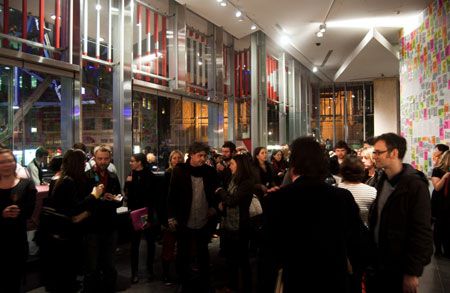With the

What does an emerging writer look like?
If writing was more like constructing a bookshelf from IKEA, and less like following shadows in the dark, I’d be able to give you a straight answer to that question. But the thing is, writers exist in a constant state of emergence. They’re always ‘becoming’, because no one really knows exactly what they’re going to find when they devote themselves to stringing words together.
The discovery is part of the thrill but who pays the bills while you’re searching? Will all that effort be worth it in the end? These and many other far darker thoughts are liable to plague the writer, emerging or otherwise. Seasoned non-fiction author, John McPhee, explains the writer’s dilemma in a New Yorker article examining the nature of first-drafts: ‘You are blocked, frustrated, in despair. You are nowhere, and that’s where you’ve been getting.’
When doubt sets in, all writers are liable to give in and ask, ‘Who am I fooling? I don’t know how to do this. Why don’t I stop wasting everyone’s time?’ Even the best literary intentions very often reveal themselves to be far less glorious than anticipated: brilliant concepts solidify into clichés, complex, intriguing characters reduce themselves into pale, two dimensional composites of your mum and some girl you knew in primary school, and thrilling plot twists slow down to stilted crawls.
Writing is difficult or, to put it another way, writing is the easiest thing in the world not to do. Poet Corey Wakeling, whose debut collection of poetry, Goad Omen was published by Giramondo earlier this year, says, ‘The writer works with the most volatile of material… it is for the writer to brave volatility and nausea where others do not and cannot.’ Both the established and emerging writer are committed to the often torturous process of self-examination and articulation. And while it may take the emerging writer a little longer to reach the finish line, they’ll get there in the end, right?‘
Popular culture says that any writer of real merit will burst through the quagmire of mediocre ‘content’ and land, sizzling, on our pages, screens and yet to be invented infotainment devices. This idealised concept of the ‘artistic genius’ is liable to stifle emerging talent before it really begins because it leaves no room to acknowledge the tireless dedication and damn hard work necessary to produce anything of value or quality.
While most emerging writers, myself unfortunately included, won’t wake up one day to discover that they are, in fact, the second incarnation of Shakespeare one thing is certain: the more a writer writes, the better they will become. Yes, every so often a writer of unparalleled aptitude enters stage left, wowing critics, booksellers and readers alike, but for every silver bullet there is a tortoise or a one-trick-pony. And each is a literary effort, no less valuable than the other.
If we do away with the counter-productive myth of the lone literary genius, it’s also easier to admit that there is no direct correlation between other key markers of literary value: sales figures, productivity and fame. If anyone has discovered the magic formula, they’re keeping it a closely guarded secret. Zoe Dattner, co-founder of Sleepers Publishing, has read her way through many a slush pile. ‘Just because it hasn’t been published doesn’t mean it’s not brilliant. And just because it has been published, doesn’t mean it is,’ she says.
While this news may console many of the ‘unknowns’ out there, traditional publication, sales figures and accolades are still used as the distinguishing features when characterising writers as either established or emerging. Paradoxically, these markers of success seem to gain increasing weight, despite the fact that the Golden Age of publishing, (whether or not it ever really existed is another argument) where promising new writers were offered insanely generous advances and could afford to take their time finding their voice and their audience (preferably somewhere in the south of France), is well and truly over. Advances are shrinking and larger publishers seem increasingly reluctant to support and promote new writers.
It’s tempting to see these cultural shifts as definitive signs of gloom and doom for the diverse array of emerging literary talent. And I do often worry that without a certain incubation period, emerging writers may never find their voice or their audience. However, festivals like the Emerging Writers’ Festival, together with independent publishers like Sleepers and Seizure, are actively fighting against the crushing homogeneity of mass culture. Alice Grudy, co-founder of Seizure, says that the magazine is all about community, ‘getting writers together and creating networks whether it be at our launches, on social media or on our website or at festivals such as EWF.’
To be part of the Emerging Writers’ Festival, an event dedicated to supporting writers, is a wonderful opportunity. And while the entire EWF team is happy to spruik the success stories that have emerged over the course of our ten year history, for example Alice Pung, Benjamin Law and Christos Tsiolkas, that’s not what the Emerging Writers’ Festival is about. We’re not here to catch the writer of the next big thing/action movie/video-game/merchandising franchise. We’re here to explore, enjoy, and to bare witness to all things emerging.
Cecilia Condon is the Development Officer for The Emerging Writers’ Festival which is happening right now! Check out


